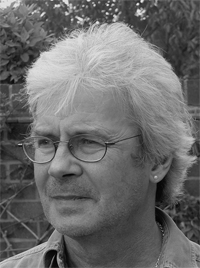
I am writing this piece in England in early 2024, well past retiring age and living well outside London.
But London was where I earned my living and raised my family. I worked there as a social care worker specialising in mental health. People from various professions operate in this field, social work being one. I qualified in social work and for more than two decades ran community centres for people classified as having a ‘severe and enduring’ mental disability. The first centre was in Fulham and the next in Westminster. It can be said that each sought to provide a sense of welcome, of belonging and of having social worth, for people otherwise deprived of such things. Then, in the mid-1990’s, I went free-lance.
I shall complicate the picture at this point by saying that, much earlier in my adult life, I had dropped out of university and had spent a few years looking for something I might usefully drop into, on my own terms. Social work – more specifically work of a therapeutic nature in the field of mental health – turned out to be the something I was fit for and could believe in and – usually – love doing.
Another complicating factor has been that, ever since I was a teenager, I have been trying to write a poetry that I can feel speaks honestly for me and makes sense of my experience and means something to at least some of my fellow citizens. Much of the work I have produced can be found on this website, the more recent appearing in the form of individual posts, the earlier material under the ‘Poems and Prose Online’ banner. There, scrolling over a poem’s title will produce a very short description of what the poem’s about.
A project I began when I went free-lance is called Poems for the Wall. Now, more than twenty years later, the project’s website makes a wide selection of poems available online, free of charge, for display in public space such as waiting rooms, libraries and schools. The poems are formatted as posters and can be displayed digitally, or downloaded and printed out. Many of them are bilingual and they represent the work of poets known nationally and internationally. In 2019, an exhibition of some of the bilingual poems was held in Clifton Cathedral (Bristol). Here are some examples. Click on the first picture and it will enlarge. Thereafter, click on the arrow to the right. The first few pictures give a general view of the exhibition in situ ; later ones offer close-ups of some of the poems.
For a good many years, while its collections were being put together, Poems for the Wall received funding from a range of sources, the most consistent being the UK Arts Council. Earlier, I had founded a small charity called Hyphen-21 and this took managerial responsibility for the project’s funding while it was required and being put to work. Hyphen-21′s Trustees both supervised and supported me in the work. I also benefited from the good offices of a number of consultants/advisors.
The title Hyphen-21 is a reference to a book by Martin Buber, called I and Thou. That book compares and explores two essential forms of relating : on the one hand ‘I – It’ ; on the other ‘I – Thou.’ In a nutshell, Buber sees the ‘I – It’ mode as a way of addressing and treating the Other as an object, from a place of detachment, of separation ; and the ‘I – Thou’ mode, in contrast, as a way of relating to Other as being as much a subject as I am, equally ‘I’, yet different and living in connection with me. Buber argues that both modes are valid and necessary in their respective spheres. But the mode I -Thou is the more essential and central and fragile. What support can be offered to those who seek to keep their footing on the more precarious, less easily delineated or measured hyphen between I and Thou ? The soft yet powerful and essential skills of empathy belong here. How to support, develop and properly value those empathic skills and attributes, along with the people whose work relies on them ?
Hyphen-21 has turned out to be more of a statement and metaphor than a doer and shaker. But, insofar as poetry can reach and connect empathically with people, then the charity’s management of, and association with, Poems for the wall exemplifies its fundamental aims.
